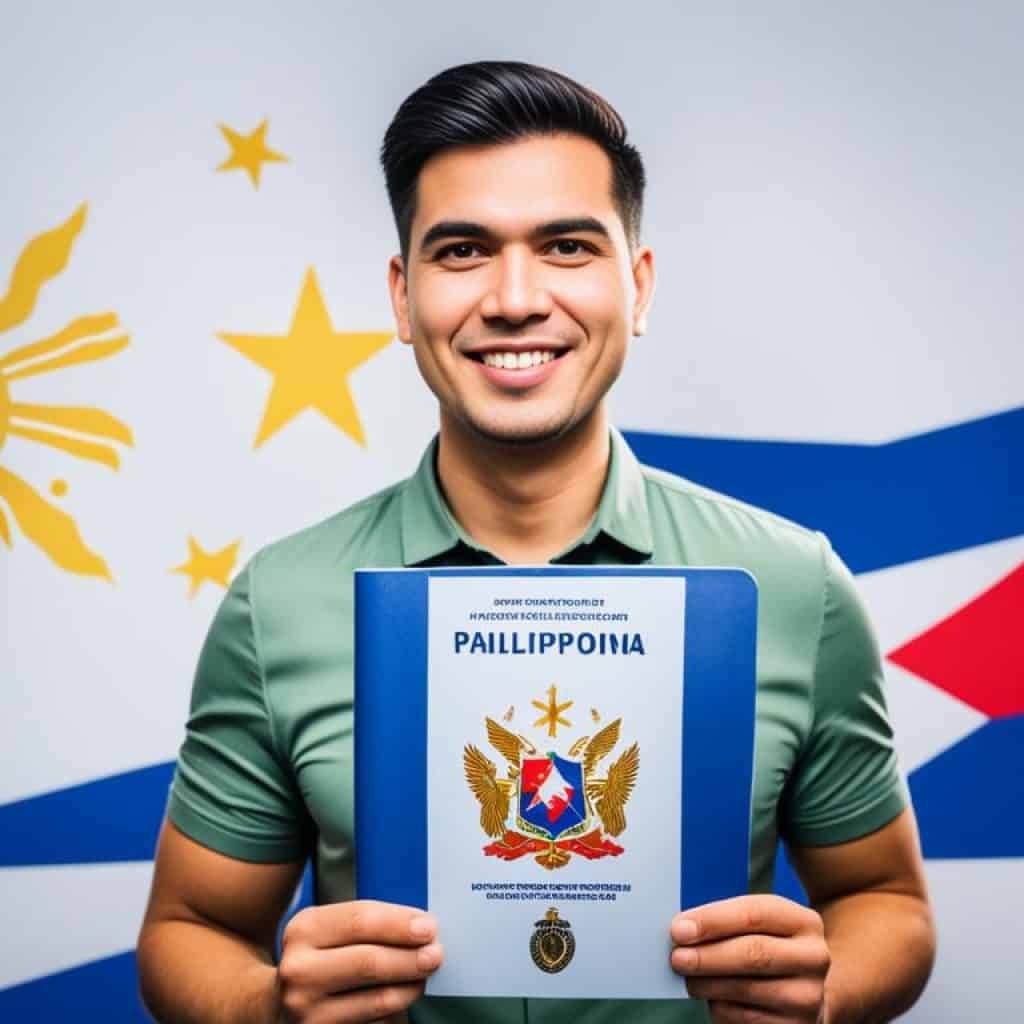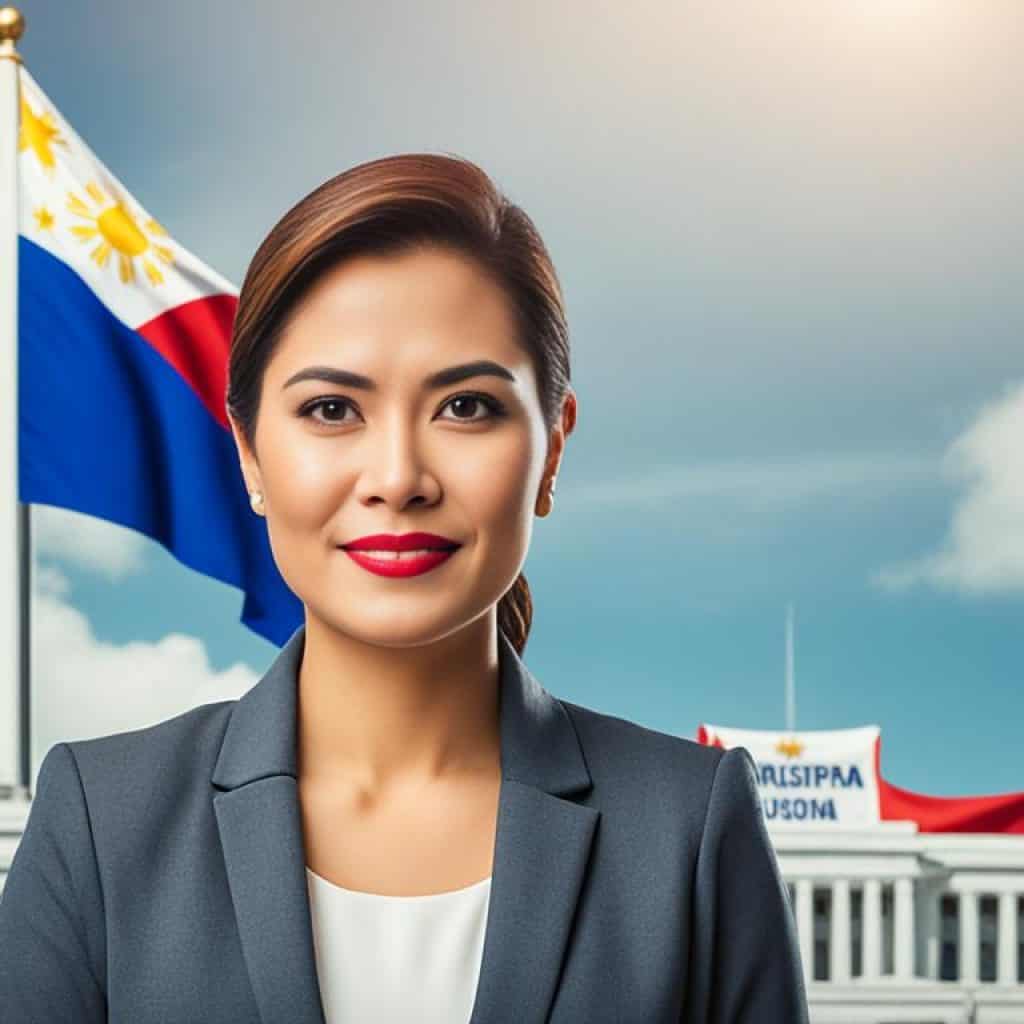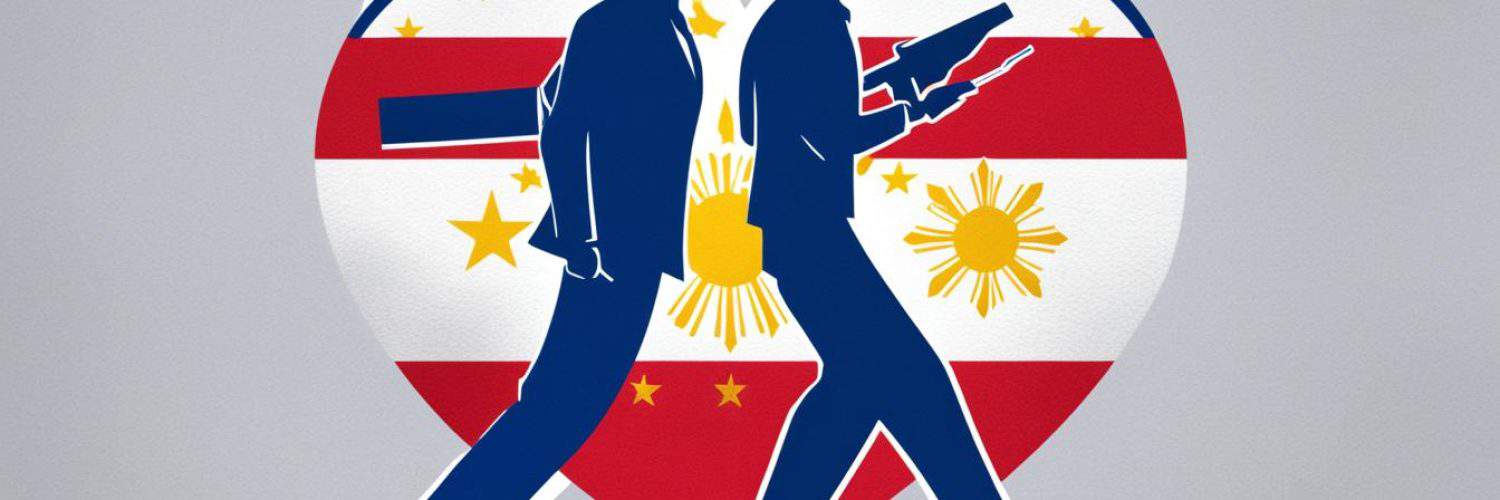Have you ever wondered what it takes to become the President of the Philippines? Is it just about being popular or having political connections? Well, it turns out that there are specific qualifications outlined in the Constitution that a candidate must meet in order to be eligible for the country’s highest office. Let’s dive into the key criteria for eligibility and explore what it truly takes to become a Philippine President.
Citizenship Requirements
In order to be eligible for the position of President of the Philippines, a candidate must meet specific citizenship requirements as outlined in the Philippine Constitution.
A key requirement is that the candidate must be a natural-born citizen of the Philippines. This means that they must have acquired Philippine citizenship at birth, either through having Filipino parents or by being born on Philippine soil.
Dual citizenship is permitted under certain circumstances, but a candidate running for the presidency must renounce any foreign citizenship and meet the other eligibility requirements specified in the Constitution.
These citizenship requirements ensure that the President of the Philippines is deeply connected to the nation and its people, with a strong commitment to the country’s interests and values.
Benefits of Natural-born Citizenship
“As a natural-born citizen, the President is ingrained with an inherent understanding and love for the Philippines. This deep-rooted connection fosters a sense of loyalty and dedication to the nation, its people, and its future.”
Age Requirement
The minimum age requirement for a candidate running for the office of President in the Philippines is 40 years old on the day of the election. This requirement ensures that the President has gained enough life experience and maturity to lead the country effectively.
Running for the highest position in the Philippines requires individuals to have reached a certain age threshold. The age requirement for the Philippine President is set at 40, ensuring that candidates have had ample time to gather the necessary life experiences and develop the maturity needed to lead a country.
Becoming President at 40 allows candidates to showcase their ability to navigate complex challenges and make critical decisions. With several decades of life behind them, prospective Presidents have likely gained valuable insights in various aspects of life that can contribute to effective governance.
At 40 years old, candidates are expected to have accumulated a wealth of knowledge and experiences, enabling them to make informed decisions and handle the responsibilities that come with leading a nation. This age requirement recognizes the importance of maturity and stability in guiding a country’s affairs.
The minimum age of 40 ensures that only individuals who have developed the necessary skills, knowledge, and perspective are eligible to run for President in the Philippines. It acknowledges that effective leadership requires a certain level of life experience, enabling candidates to make sound judgments and prioritize the nation’s interests.
This age requirement emphasizes the importance of stability and seasoned leadership in the highest office of the land. By setting the bar at 40, the Philippines ensures that its President is equipped with the qualities necessary to govern wisely and navigate the complexities of national and international politics.
As the image above illustrates, the age requirement is an integral part of the selection process for the Philippine President. It serves as a criterion to ensure that candidates have the necessary maturity and life experiences to carry out the duties of the highest office in the country effectively.
Literacy and Residency Requirements
To be eligible for the office of President in the Philippines, candidates must meet certain literacy and residency requirements in addition to being a natural-born citizen and meeting the age requirement.
Literacy Requirements: A candidate for President must be able to read and write. This ensures that the President has the necessary skills to understand important documents, communicate effectively, and stay informed about the issues facing the country.
Residency Requirement: Candidates must have been a resident of the Philippines for at least 10 years immediately preceding the election. This length of residency ensures that the President is familiar with the country, its culture, and the needs and concerns of its people. It also helps to establish a strong connection between the President and the Filipino community.
These requirements for literacy and residency are in place to ensure that the President of the Philippines possesses the necessary knowledge, abilities, and commitment to effectively serve the country and its people.

| Requirements | Details |
|---|---|
| Literacy | Able to read and write |
| Residency | At least 10 years of residency immediately preceding the election |
Term Limit
The President of the Philippines is limited to a single term of six years, non-renewable. This term limit promotes democratic principles and prevents any one individual from holding power indefinitely.
Criminal History and Moral Character
A candidate for President in the Philippines must meet certain requirements regarding their criminal history and moral character. To uphold the integrity of the office, individuals who have been convicted of crimes against humanity, engaged in criminal acts, or have been deprived of civil rights by court are disqualified from running for President.
This requirement ensures that the President has a clean record and maintains a high moral character, reflecting the values and principles expected of the leader of the nation. By disqualifying individuals with criminal charges, the Philippines aims to safeguard the reputation and credibility of the highest office in the land.
“A strong moral character is crucial for the President of the Philippines. We want a leader who embodies honesty, integrity, and the highest ethical standards. By disqualifying individuals with criminal records, we ensure that the person entrusted with leading our country has exemplified the values we hold dear.”
Maintaining a clean criminal record is not only a legal requirement but also a reflection of the candidate’s commitment to upholding the rule of law and serving as a role model for the Filipino people. The moral character requirement emphasizes the importance of leadership by individuals who have proven themselves to be honorable and trustworthy.
| Disqualification Due to Criminal Charges | Moral Character Requirement |
|---|---|
| To be eligible for the Philippine Presidency, candidates must not have been convicted of crimes against humanity, engaged in criminal acts, or deprived of civil rights by court. | The requirement ensures that the President maintains a high moral character, reflecting honesty, integrity, and the highest ethical standards. |
| Candidates with criminal charges are disqualified to ensure that the Philippine President has a clean record and upholds the principles of the office. | A leader with a strong moral character sets an example for the nation and displays a commitment to serving the Filipino people. |
Political Experience
While there are no specific political experience requirements to become the President of the Philippines, many candidates have previously held political positions such as senators, governors, or members of the House of Representatives. This political background provides candidates with valuable knowledge and skills that can be beneficial in the role of President.
Having political experience allows candidates to develop a deep understanding of the complexities of governance, including legislative processes, policy-making, and the intricacies of public administration. It also grants them insights into the challenges and opportunities that come with leading and serving the Filipino people.
Political experience equips candidates with the necessary expertise to navigate the political landscape, build relationships with stakeholders, and make informed decisions for the betterment of the nation.
Although political experience is not a formal requirement, it is widely recognized as an important factor in assessing a candidate’s qualifications for the highest office in the country. Voters often consider a candidate’s track record and political achievements when evaluating their capacity to effectively handle the responsibilities and demands that accompany the presidency.
The Value of Political Experience
Political experience offers numerous benefits to a potential President of the Philippines. It provides candidates with:
- Knowledge of the legislative and executive branches of government
- Understanding of the policymaking process
- Insight into the needs and aspirations of different constituencies
- Experience in managing budgets and allocating resources
- Established networks and relationships with key stakeholders
By leveraging their political experience, candidates can bring a wealth of expertise and proven leadership abilities to the presidency. They are better equipped to formulate and implement effective policies, navigate the complexities of government bureaucracy, and address the pressing issues facing the nation.
Political experience enhances a candidate’s credibility and demonstrates their commitment to public service. It showcases their capacity to lead and inspires public trust, as voters can rely on proven track records and tangible accomplishments.
While political experience is not the sole determinant of a successful presidency, it is widely regarded as an important qualification that can greatly contribute to an individual’s ability to effectively govern and fulfill the responsibilities of the Philippine President.
Gender and Marital Status
The qualification for President in the Philippines does not depend on gender or marital status. Both male and female candidates are eligible to run for President, as long as they meet the other requirements outlined in the Constitution.

When it comes to electing the President of the Philippines, gender plays no role in determining eligibility. The Constitution of the Philippines does not impose any gender qualifications or restrictions on candidates running for the highest office in the country. As long as individuals meet the other constitutional requirements, they are free to pursue the presidency regardless of their gender.
This provision in the Philippine Constitution serves as a testament to the nation’s commitment to gender equality and inclusivity in politics. It ensures that both male and female citizens have an equal opportunity to lead the country and contribute their unique perspectives and qualities to the role of the President.
Furthermore, the marital status of a candidate does not impact their eligibility to run for President. Single, married, or divorced individuals can all seek the presidency as long as they fulfill the other criteria required by the Constitution. This absence of marital status as a qualification acknowledges that one’s ability to govern effectively is not determined by their personal relationship status.
By removing gender and marital status as considerations for presidential eligibility, the Philippines promotes equality and allows for a diverse pool of candidates to compete for the position. This openness ensures that the most qualified individuals, regardless of their gender or marital status, have the opportunity to lead the nation and work towards its progress and prosperity.
Religion
The Constitution of the Philippines does not impose any religious qualifications on candidates running for the presidency. This means that individuals from any religious denomination or those without any religious affiliation can aspire to become the President of the Philippines. The principle of the separation of church and state is upheld, ensuring religious freedom for all citizens.
It is important for a diverse and multicultural nation like the Philippines to respect and accommodate various religious beliefs and practices. The freedom to practice one’s religion without hindrance and discrimination plays a vital role in fostering a harmonious and inclusive society.
Succession and Acting President
In the Philippines, the process of presidential succession ensures the continuity of leadership in the event of the President’s incapacity, resignation, or death. The Vice President of the Philippines plays a crucial role in this process, assuming the position of Acting President.
If the President is unable to fulfill their duties, whether due to illness, temporary absence, or any other reason, the Vice President steps in as the Acting President to ensure the smooth functioning of the government.
In some cases, the President may fully recover and resume their duties. However, if the President is unable to continue serving, the Vice President may continue as the Acting President for the remainder of the term or until a new President is elected through the regular electoral process.
This succession and acting presidency system provides stability and continuity of governance, allowing for the seamless transition of power in times of need.
Character and Leadership Qualities
While not explicitly stated in the qualifications, having certain character traits and leadership qualities is essential for a President to effectively lead the country. These qualities contribute to their ability to inspire, guide, and make strategic decisions that benefit the Filipino people and the nation as a whole.
Strong Communication Skills
One of the most crucial qualities for a President is the ability to communicate effectively. A President must be able to articulate their vision, goals, and policies clearly to the public and to other global leaders. Effective communication fosters understanding, builds trust, and promotes unity among citizens, facilitating cooperation and collaboration.
Critical Thinking
The ability to think critically is vital for a President. They must analyze complex situations, evaluate pros and cons, and identify potential consequences before making informed decisions. Critical thinking enables the President to navigate through challenges, consider different perspectives, and develop well-rounded solutions to address the needs and issues of the nation.
Decision-making Ability
A President must possess strong decision-making skills. They are entrusted with making crucial choices that impact the country’s welfare, such as implementing policies, managing crises, and allocating resources. Effective decision-making involves considering various factors, seeking expert advice, and weighing long-term consequences for the benefit of the Filipino people.
Diplomacy
Diplomacy plays a significant role in a President’s leadership. They must engage in diplomatic negotiations, forge international relationships, and represent the Philippines on the global stage. A diplomatic President fosters positive international relations, strengthening the country’s standing and promoting mutual understanding and cooperation.
Integrity
Integrity is a fundamental character trait for a President. Upholding ethical principles, being honest, and acting in the best interest of the Filipino people are essential. A President’s integrity inspires trust among citizens, fosters transparency, and strengthens the nation’s moral fabric.
Commitment to Serving the Filipino People
A President must have a sincere dedication to serve the Filipino people and prioritize their welfare above personal interests. They should be driven by a deep sense of duty, empathy, and a genuine desire to bring about positive change. A President’s commitment to the people ensures that their actions align with the needs and aspirations of the nation.
“Leadership is not about being in charge. It is about taking care of those in your charge.”
– Simon Sinek
Developing and embodying these character traits and leadership qualities allows a President to lead with empathy, integrity, and a focus on the common good. When combined with the necessary qualifications and experience, they create a strong foundation for effective and inclusive governance, enabling the President to navigate challenges, inspire the nation, and lead the Philippines towards a prosperous future.

Global Perspective
The role of the President of the Philippines extends beyond national borders, requiring a global perspective and an understanding of international relations. It is crucial for the President to navigate diplomatic protocols, establish and maintain relationships with other countries, and effectively represent the Philippines on the global stage. By engaging in international affairs and foreign policy, the President contributes to shaping the country’s position in the global community.
The Importance of International Relations
International relations play a vital role in the development and progress of a nation. As the world becomes increasingly interconnected, countries rely on cooperation and collaboration to address global challenges, promote economic growth, and maintain peace and stability. The President of the Philippines, as the highest representative of the nation, holds the responsibility to foster constructive relationships with other countries and promote mutual understanding.
An understanding of international relations allows the President to actively participate in international organizations, forums, and summits. These platforms provide opportunities to discuss bilateral and multilateral issues, negotiate agreements, and collaborate on initiatives that benefit the Philippines and the international community as a whole.
Foreign Policy of the Philippine President
The foreign policy of the Philippine President reflects the country’s goals and interests in the global arena. It encompasses strategies, principles, and decisions that guide the nation’s interactions with other countries. A well-defined foreign policy ensures that the Philippines’ voice is heard and considered in international affairs.
The President’s foreign policy agenda may prioritize economic diplomacy to attract investments, enhance trade relations, and promote Philippine products and services abroad. It may also focus on strengthening political ties through diplomacy, supporting peace initiatives, and engaging in dialogue on issues such as climate change, human rights, and regional security.
“Our foreign policy must be guided by the national interest. Our interactions with the international community should be based on mutual respect, equality, and a shared desire for peace and prosperity.”
The President, as the chief architect of foreign policy, works closely with the Department of Foreign Affairs and other relevant agencies to create a cohesive and effective approach. Through bilateral meetings, diplomatic visits, and participation in international conferences, the President promotes the Philippines’ reputation and advocates for its interests.
Responsive and Informed Leadership
A President with a global perspective can effectively anticipate and respond to emerging global challenges. By staying informed about global trends, geopolitical dynamics, and current events, the President can make sound decisions that benefit the nation’s interests.
Furthermore, a global perspective allows the President to engage in meaningful discussions and negotiations for the benefit of the Philippines. Whether it is fostering international collaborations, resolving conflicts, or promoting sustainable development, a President with a strong grasp of international relations can navigate complex issues and represent the nation effectively.
An Image from the Global Stage
In Summary
The global perspective of the President of the Philippines is crucial for effective international relations and foreign policy. By understanding the intricacies of international affairs, establishing diplomatic relationships, and advocating for the nation’s interests, the President plays a vital role in shaping the country’s position in the global community. With knowledge, leadership, and responsiveness, the President ensures that the Philippines actively participates in the global stage, contributing to a brighter future for the nation and its citizens.
Constitutional Duties and Powers
The President of the Philippines holds significant constitutional powers and duties that are essential for effective governance and leadership. These powers and responsibilities include:
- Head of state: The President represents the country in matters of external affairs and serves as the symbol of national unity and sovereignty.
- Head of government: The President is responsible for the administration and implementation of government policies and programs.
- Commander-in-chief of the Armed Forces: The President has authority over the country’s military forces and plays a crucial role in ensuring national security and defense.
- Execution and enforcement of laws: The President has the power to execute and enforce laws enacted by the legislative branch.
- Appointment of government officials: The President has the authority to appoint individuals to key government positions, including cabinet members, ambassadors, and other senior officials.
- Granting pardons: The President can grant pardons, reprieves, and commutations of sentences to individuals convicted of crimes, based on the principles of justice and mercy.
- Negotiating treaties: The President represents the Philippines in international relations and has the power to negotiate and enter into treaties and agreements with other countries.
“The President of the Philippines possesses significant constitutional powers and responsibilities that enable them to lead the country, ensure national security, enforce laws, and represent the Philippines on the global stage.”
These constitutional powers and duties provide the President with the authority and influence necessary to make important decisions, shape policies, and guide the nation towards progress and development. By exercising these powers responsibly and in the best interest of the Filipino people, the President plays a crucial role in the governance and well-being of the Philippines.
Summary:
In summary, the President of the Philippines has critical constitutional duties and powers that include being the head of state, head of government, and commander-in-chief of the Armed Forces. Additionally, the President has the authority to execute and enforce laws, appoint government officials, grant pardons, and negotiate treaties. These powers enable the President to lead the country effectively and shape its future for the better.
Role in Legislative Process
While the legislative branch is separate from the executive branch, the President plays a significant role in the legislative process in the Philippines. The President’s involvement in legislation is crucial to the functioning of the government and the passage of laws that benefit the Filipino people.
One of the President’s key roles in the law-making process is the power to propose legislation. The President can introduce bills to Congress, outlining their priorities and policy agenda. This allows the President to shape the legislative agenda and address pressing issues that require legislative action.
Additionally, the President delivers an annual State of the Nation Address (SONA) before Congress. During the SONA, the President highlights the achievements of the government, outlines future plans, and presents legislative proposals that require the attention and cooperation of Congress. The SONA serves as a platform for the President to rally support for their legislative agenda and garner public awareness and engagement.
“The President’s involvement in the legislative process is vital in ensuring effective governance and the implementation of policies that address the needs of the Filipino people.”
Furthermore, the President has the power to exercise veto authority over bills passed by Congress. If the President believes that a bill is not in the best interest of the country or is unconstitutional, they can reject it by issuing a veto. This power serves as a check and balance mechanism, ensuring that legislation is thoroughly reviewed and aligns with the President’s vision and policy objectives.
The President’s role in the legislative process exemplifies the dynamic interplay between the executive and legislative branches of the government. By actively participating in the law-making process, the President can drive meaningful change, shape policies, and contribute to the overall development of the nation.
Conclusion
In conclusion, the qualifications for the President of the Philippines are carefully outlined to ensure that the individual possesses the necessary attributes and experience to effectively lead the country. The candidate must be a natural-born citizen, meet the age and residency requirements, have a clean criminal record and moral character, and possess the ability to read and write.
The President of the Philippines plays a crucial role in the government, being the head of state, head of government, and commander-in-chief of the Armed Forces. The responsibilities of the President include executing and enforcing laws, appointing government officials, granting pardons, and representing the country on the global stage.
With the qualifications in place, the President of the Philippines is entrusted with the duty to serve and protect the Filipino people. By maintaining integrity, demonstrating strong leadership qualities, and having a global perspective, the President can effectively navigate the challenges and responsibilities of the role, ensuring the welfare and development of the nation.


















Add comment